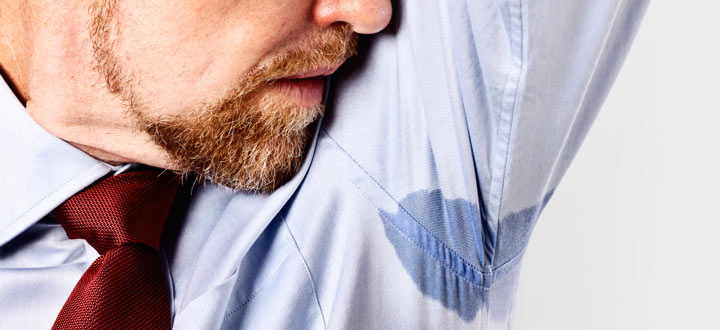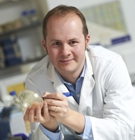Researchers sniff out the cause of body odour
-
Research
- Technologies for the Future
Posted on 8 April 2015
Our microbiologists have de-coded the genetic pathway behind body odour – and the discovery could pave the way for new-generation deodorants which target the troublesome compounds behind armpit pong.

Thioalcohols are very pungent....It's fair to say that we weren't very popular”
Working with experts from Unilever, our researchers collected over 150 different bacteria from the underarms of volunteers. They found that one type of bacteria, Staphylococcus hominis, was particularly good at breaking down sweat molecules into foul-smelling compounds known as thioalcohols – a key element of body odour.
Pungent
“Thioalcohols are very pungent,” said Dr Dan Bawdon from our Department of Biology, who led the research. “They smell like rotten eggs, onions or meat. We worked with them at very low concentrations in the lab, but they still smell. It’s fair to say that we weren’t very popular…”
One particular gene found in S. hominis was also found in two other species of Staphylococcus, which were also shown to be strong thioalcohol producers.
“This work has significantly advanced our understanding of the specific biochemical processes involved in body odour production,” said Dr Bawdon. “We have opened up the possibility of inhibiting body odour, using compounds designed to target the specific proteins controlling the release of malodorants.”
Tackling the thioalcohols
Traditional deodorants and antiperspirants act by non-selectively killing underarm bacteria or by blocking our sweat glands. The researchers hope that this new study can be used to produce compounds that specifically tackle thioalcohols.
Dr Gavin Thomas, group leader in the Department of Biology, said: “This was a really successful project funded through the BBSRC iCASE PhD scheme with microbiologist Dr Gordon James in Unilever. Our data is already having direct impact on the research being done in the company.”
The researchers announced their findings at the Society for General Microbiology’s conference in Birmingham.
The text of this article is licensed under a Creative Commons Licence. You're free to republish it, as long as you link back to this page and credit us.

Dr Gavin Thomas
Research interests are centred on the bacterium Escherichia coli.
Visit the department
Learn more
Explore more research

A research project needed to spot trees on historic ordnance survey maps, so colleagues in computer science found a solution.

We’re using gaming technology to ensure prospective teachers are fully prepared for their careers.

A low cost, high-accuracy device, could play a large part in the NHS's 'virtual wards'.
